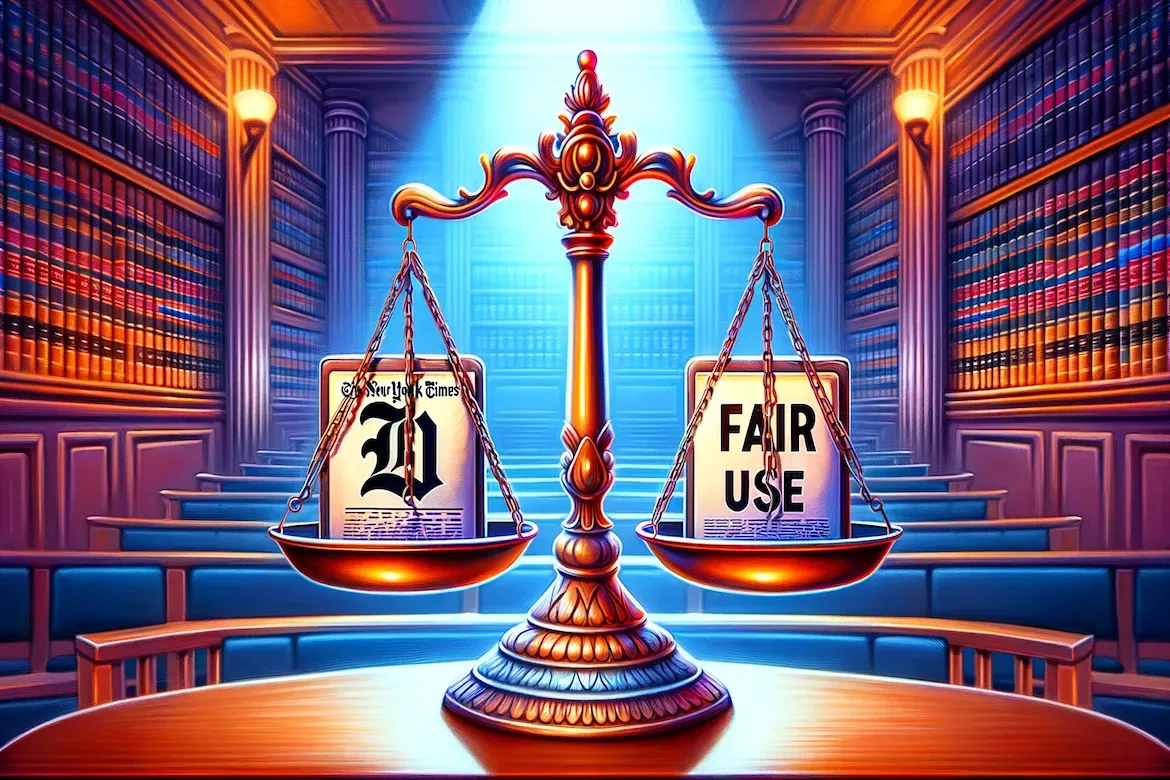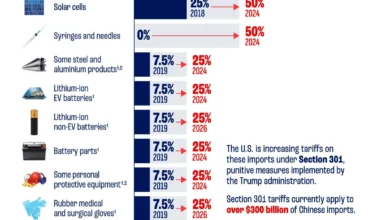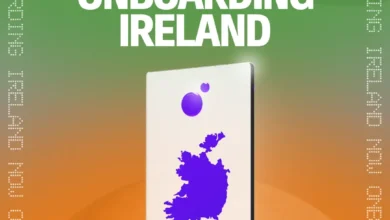Copyright Lawsuits OpenAI: Integration of High-Profile Cases

Copyright lawsuits OpenAI has been a hot topic in recent months as several high-profile authors and media organizations have taken legal action against the tech giant. This wave of litigation primarily focuses on allegations that OpenAI and Microsoft used copyrighted works to train their artificial intelligence systems without proper authorization. Among the plaintiffs are notable names like Ta-Nehisi Coates and Michael Chabon, who argue that their intellectual property rights have been infringed upon by these tech companies. As these cases move to New York for consolidation, the question of fair use in AI training becomes increasingly relevant in the ongoing debate surrounding AI copyright issues. With distinct concerns raised by authors suing OpenAI, the outcome of these lawsuits could set a crucial precedent for the future of AI development and copyright law.
The intersection of technology and intellectual property has sparked a surge in litigation, particularly concerning copyright infringement related to AI. Recent developments highlight how authors are rallying against corporations like OpenAI and Microsoft, asserting their rights as creators in the face of automated systems that leverage their works. With a myriad of lawsuits unfolding, including claims against Microsoft, the complexity of AI copyright issues has come to the forefront of legal discussions. The convergence of these lawsuits underscores the critical dialogue surrounding the practice of fair use in training AI models and the potential implications for writers who feel threatened by the growing influence of artificial intelligence in content generation. As these legal battles progress, the creative community watches closely, hoping for outcomes that respect their contributions and clarify the evolving landscape of copyright law.
Overview of Copyright Lawsuits Against OpenAI and Microsoft
The recent consolidation of copyright lawsuits against OpenAI and Microsoft marks a significant moment in the ongoing debate regarding intellectual property in the age of AI. Twelve cases have been merged in the Southern District of New York, involving well-known authors like John Grisham and Michael Chabon, among others. These lawsuits arise from allegations that OpenAI and Microsoft utilized copyrighted materials to train their generative language models without obtaining proper permissions or compensating the copyright holders. The merging of these cases is designed to streamline proceedings and handle the complexities of multiple similar allegations in a unified manner.
The plaintiffs, which include various authors and media organizations, argue that their works have been leveraged in ways that infringe on copyright laws. This centralization initiative was initiated by a judicial panel, aiming to minimize inconsistent rulings and provide a cohesive path forward for the cases. However, many involved have contested this approach, maintaining that the unique nuances of their individual cases warrant separate trials. The contentious nature of copyright in relation to AI usage has led to an unprecedented legal landscape that raises critical questions about the future of authorship and intellectual property rights.
The Role of Fair Use in AI Training
A focal point in the lawsuits is the doctrine of fair use, with tech companies like OpenAI claiming that their training of AI models on copyrighted works falls under this legal provision. Fair use allows for the limited use of copyrighted material without permission under specific conditions, but its application in the context of AI remains controversial. Critics point out that vast quantities of copyrighted works were allegedly used without consent, challenging the argument that such usage can be justly classified as fair use. As both sides prepare to argue their positions in court, the interpretations of fair use in relation to AI training will become pivotal.
OpenAI’s representatives expressed confidence in defending their practices based on the principles of fair use, insisting that their models are primarily trained on publicly available data. This defense highlights the ongoing debate within both legal and technological spheres regarding how AI systems are developed. As technology continues to evolve, so too will the legal frameworks that govern it, particularly in terms of balancing innovation with the rights of original content creators. The outcomes of these lawsuits could set important precedents for future AI developments and the use of copyrighted material.
The Impact of Consolidation on Legal Proceedings
The decision to consolidate lawsuits from various authors and publishers is aimed at improving efficiency within the legal system. By unifying the cases, a single judge can oversee discovery processes and pretrial proceedings, potentially reducing delays and ensuring that resources are used effectively. This approach not only allows for a more organized hearing of overlapping claims but also facilitates a focused examination of the fundamental legal issues at stake, particularly the alleged copyright infringements occurring in AI training processes.
However, the consolidation has faced backlash from some plaintiffs who believe that their specific allegations differ significantly from others. They feel that each case deserves individual consideration to fully address the unique legal questions posed. The judicial panel’s choice to transfer the cases to New York, despite resistance, indicates a strong belief in the benefits of centralized proceedings. This controversial strategy may either enhance the clarity of rulings on AI copyright issues or lead to complications stemming from unaddressed individual circumstances of each case.
Responses from Authors and Activists
In light of the copyright lawsuits, many authors have taken a stand against what they perceive as unjust practices by companies like OpenAI and Microsoft. Protests have erupted, particularly outside Meta’s offices, where demonstrators vocally condemned the misuse of copyrighted materials for AI training. Slogans such as “Get the Zuck off our books” reflect a growing frustration among creators who feel that their intellectual property is being exploited without compensation or acknowledgment. This form of activism highlights the widespread concern about the implications of AI technology on the creative industries.
Furthermore, the public’s response to the lawsuits underscores a rising awareness of copyright issues surrounding AI. Authors are not only suing OpenAI but are also targeting multiple tech giants, including Meta and Amazon, for perceived infringements. This panorama of legal action signifies a pivotal moment in the fight for creators’ rights, as both established and emerging writers confront the challenges posed by artificial intelligence’s rapid development. The breadth of these protests demonstrates a collective push for equity in the digital landscape, as authors advocate for stronger protections against unauthorized use of their works.
Comparative Legal Precedents in AI Copyright
Legal precedents play a crucial role in shaping the outcomes of current copyright lawsuits against AI developers. The rulings in these cases could set significant benchmarks for future disputes regarding AI and copyright. For instance, previous cases in different jurisdictions have addressed issues of fair use, leading to varying interpretations and applications. The results of the consolidated lawsuits in New York may follow suit, potentially differing from other legal frameworks and influencing how similar cases are approached globally.
As discussions surrounding copyright infringement and AI evolve, it is essential to consider other court rulings that have addressed similar themes. Outcomes in prior cases, such as those involving tech giants or artistic works, could offer insights into the court’s reasoning regarding the use of copyrighted materials without explicit permission. Observers will be keen to see how existing legal philosophies surrounding copyright and fair use navigate the complexities introduced by advancements in AI technology, possibly redefining the landscape of intellectual property law in the digital age.
The Role of Microsoft in AI Copyright Issues
Microsoft’s involvement in the ongoing copyright lawsuits illustrates the intersection of major technology firms and intellectual property rights. As a key partner and investor in OpenAI, Microsoft is not only experiencing the consequences of legal challenges but also shaping the dialogues surrounding AI copyright issues. Their products, including Microsoft Copilot, have sparked debates regarding the ethical use of copyrighted materials, echoing the sentiments expressed by suing authors who argue that the technologies infringe on their rights.
While Microsoft asserts its position that the use of copyrighted works falls within the fair use framework, many plaintiffs contend that their creative rights have been overlooked. This tension brings to the forefront the dichotomy between technological advancement and legal frameworks, prompting a reevaluation of how large company practices align with copyright protections. The outcome of these lawsuits may influence Microsoft’s development strategies and their commitment to addressing copyright concerns in AI technologies leading to a more responsible approach in the industry.
Future Implications for AI Development and Copyright
The resolution of the copyright lawsuits against OpenAI and Microsoft will likely have far-reaching implications for the future of AI development and copyright laws. A ruling in favor of the plaintiffs could set a precedent for how AI technologies are trained on existing literature, potentially requiring tech companies to invest in license agreements or seek permissions. Conversely, a ruling in support of AI firms may reinforce current practices, leading to fewer restrictions on AI training data, and possibly a shift in understanding of fair use as it pertains to emerging technologies.
As these lawsuits progress, stakeholders across the technology and creative sectors are watching closely. The outcomes will not only affect how AI companies operate but will also influence writers, publishers, and other content creators navigating their rights in the digital age. Striking a balance between technological innovation and copyright protections remains a critical challenge, and the legal rulings that emerge will shape the trajectory for both creators and AI developers in the coming years.
Concerns from Authors about AI-generated Content
Concerns about the accuracy and integrity of AI-generated content are rising among authors and literary critics alike. Given the various copyright lawsuits against OpenAI and Microsoft, there are fears that AI outputs could misrepresent original works or fail to capture the nuances that human authors convey. This raises ethical questions about the role of AI in content creation and whether the technology can ever truly replicate the depth and creativity found in human literature.
Furthermore, as major platforms like Amazon integrate AI features into their services, such as the AI-generated recaps for Kindle, the implications on quality and authorship are profound. Readers and authors alike worry that reliance on AI could undermine their reading experiences and diminish the overall value of original content. Continued scrutiny and dialogue around AI-generated literature will be essential to understand its impact on the literary landscape and to ensure that authors’ rights are respected amid technological advancement.
The Intersection of AI Technology and Copyright Law
The intersection of AI technology and copyright law is a dynamic and evolving field, particularly as lawsuits against entities like OpenAI and Microsoft gain traction. This convergence poses significant challenges and opportunities, as technology continues to outpace existing legal frameworks. The outcomes of ongoing litigation will not only clarify the rules governing AI’s use of copyrighted content but also pave the way for future legislation and regulations that address these emerging technologies.
Legal scholars and practitioners are increasingly analyzing these intersections, considering the nuances of copyright law in the context of machine learning and AI training practices. As courts reckon with the complexities introduced by technological advancements, stakeholders must engage in proactive discussions about rights, permissions, and fair use to construct a legal landscape that is both adaptable and protective of creative works. The outcomes of the current lawsuits will ultimately serve as a harbinger for how society navigates the intricate relationship between innovation and intellectual property.
Frequently Asked Questions
What are the current copyright lawsuits OpenAI is facing?
OpenAI is currently facing twelve copyright lawsuits consolidated in New York, involving allegations from prominent authors and media organizations claiming that their works were used without consent to train AI models. Notable plaintiffs include authors like Ta-Nehisi Coates and John Grisham.
How do copyright infringement claims against OpenAI relate to AI training?
Copyright infringement claims against OpenAI stem from allegations that the company used copyrighted materials without permission to train its large language models, which power products like ChatGPT. Plaintiffs argue this violates their rights as authors.
What is the significance of the judicial panel’s decision to consolidate lawsuits against OpenAI and Microsoft?
The judicial panel’s decision to consolidate copyright lawsuits against OpenAI and Microsoft aims to streamline pretrial processes and allow a single judge to manage the litigation. This is intended to ensure consistent rulings and efficient handling of shared factual questions.
What are the fair use defenses being used by OpenAI in these lawsuits?
OpenAI is defending itself against copyright lawsuits by asserting that its use of copyrighted works falls under the doctrine of ‘fair use,’ which permits certain unauthorized uses of copyrighted material for purposes like commentary, criticism, and research, particularly when training AI.
How could the outcomes of these copyright lawsuits affect AI copyright issues?
The outcomes of these copyright lawsuits against OpenAI and Microsoft could significantly impact AI copyright issues by setting precedents for how AI companies can use copyrighted materials. These cases will explore the boundaries of fair use in the context of training AI models.
Are authors suing OpenAI also taking action against other tech companies?
Yes, many authors suing OpenAI for copyright infringement have also filed lawsuits against other tech companies, including Meta, for similar reasons involving the unauthorized use of their works to train AI models.
What role does Microsoft play in the ongoing copyright lawsuits involving OpenAI?
Microsoft is a co-defendant in the ongoing copyright lawsuits involving OpenAI, as the company has incorporated OpenAI’s models into its products. The lawsuits allege that both companies used copyrighted materials without authorization.
What concerns are authors raising regarding the use of AI-generated content?
Authors are raising concerns about the accuracy and ethical implications of AI-generated content, particularly in light of copyright infringement allegations. They argue that AI companies should not profit from their works without proper compensation and recognition.
How are recent copyright proposals in the UK related to AI training practices?
Recent copyright proposals in the UK aim to allow AI companies to train models on copyrighted materials by default, unless rights holders opt-out. This approach has sparked debates similar to those surrounding lawsuits against OpenAI and Microsoft’s use of copyrighted works.
What has been the response from authors regarding the consolidation of their lawsuits against OpenAI?
Many authors have opposed the consolidation of their lawsuits against OpenAI and Microsoft, arguing that their cases are distinct and warranted separate treatment. Despite their objections, the judiciary prioritized efficiency and consistency in handling the overlapping issues.
| Key Points | Details |
|---|---|
| Consolidation of Lawsuits | Twelve copyright lawsuits against OpenAI and Microsoft have been merged in New York, including cases from notable authors and media. |
| Authors Involved | Prominent authors suing include Ta-Nehisi Coates, Michael Chabon, Junot Díaz, and Sarah Silverman, alongside figures like John Grisham and Jonathan Franzen. |
| Centralization Rationale | The judicial panel emphasized that centralizing cases would streamline procedures and facilitate judicial efficiency. |
| Fair Use Argument | Tech companies argue their use of copyrighted works for AI training falls under fair use, allowing for certain unauthorized uses. |
| Meta Litigation | Several authors are also suing Meta for similar copyright issues related to its AI training practices. |
Summary
Copyright lawsuits against OpenAI have gained significant attention as they raise crucial questions about the use of copyrighted materials in AI training. The consolidation of various cases in New York highlights the complexities of intellectual property rights in the context of technological advancement. As the legal battle unfolds, it will be vital to determine the balance between innovation in AI and the protection of authors’ rights, specifically regarding how copyright law is applied in the digital age.




